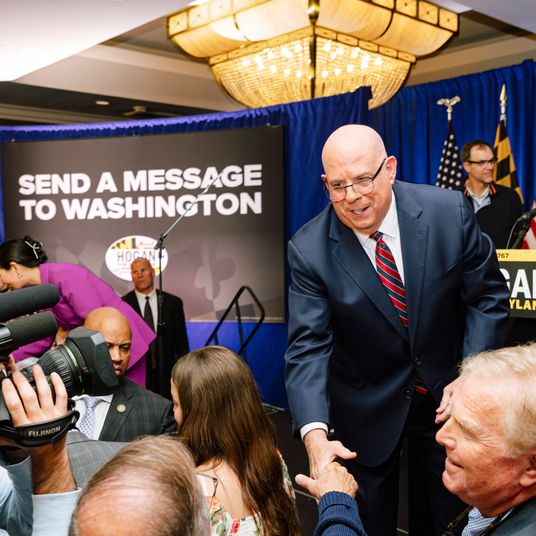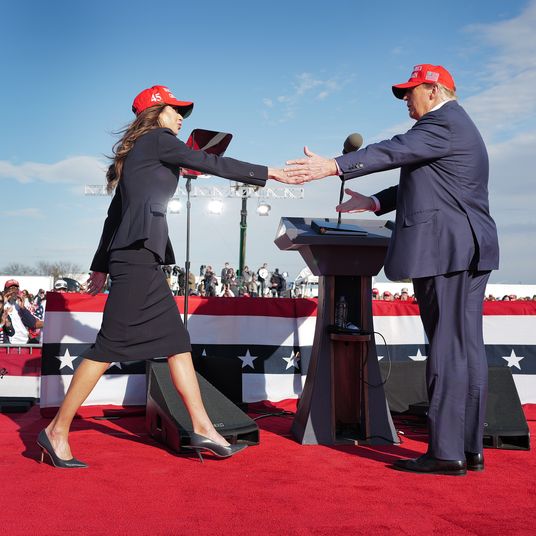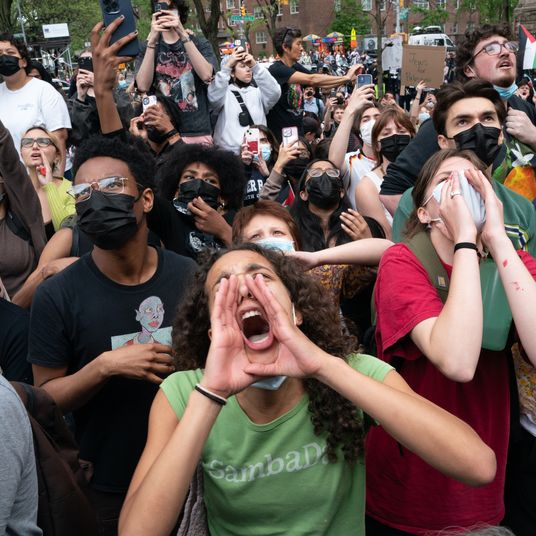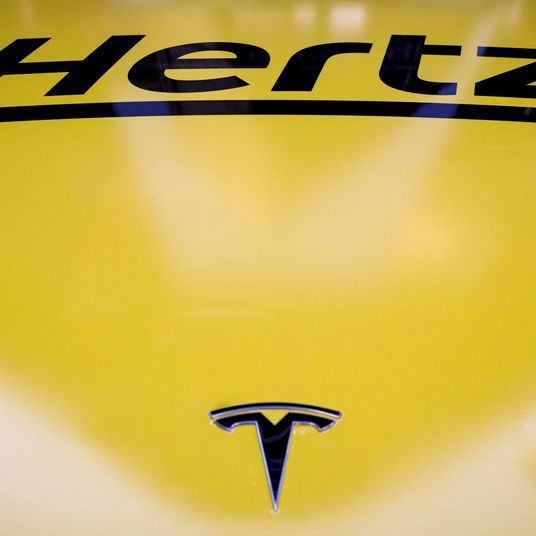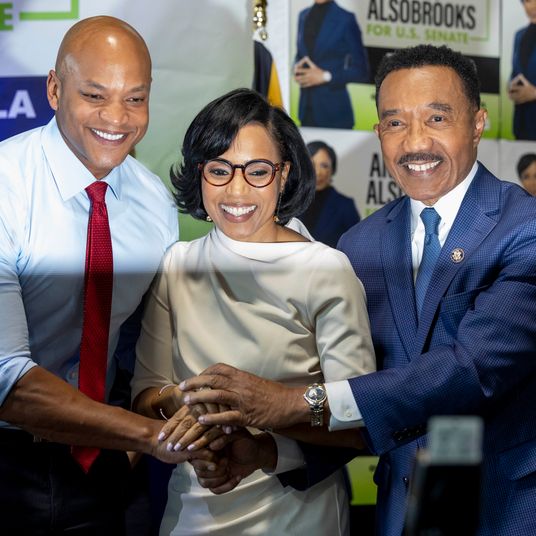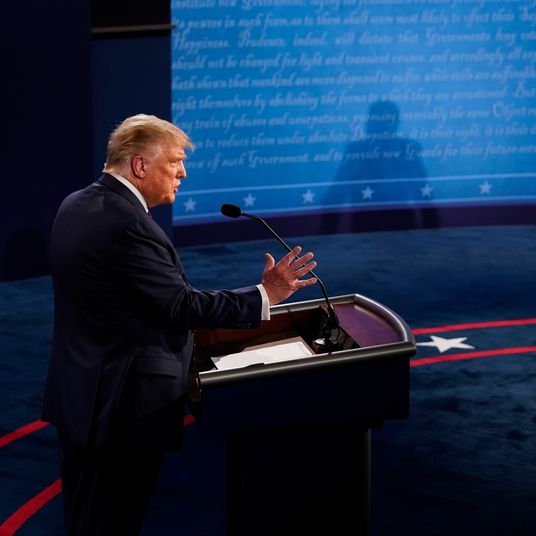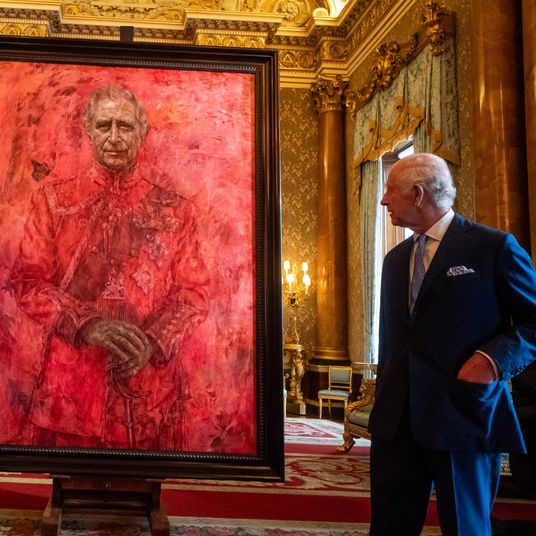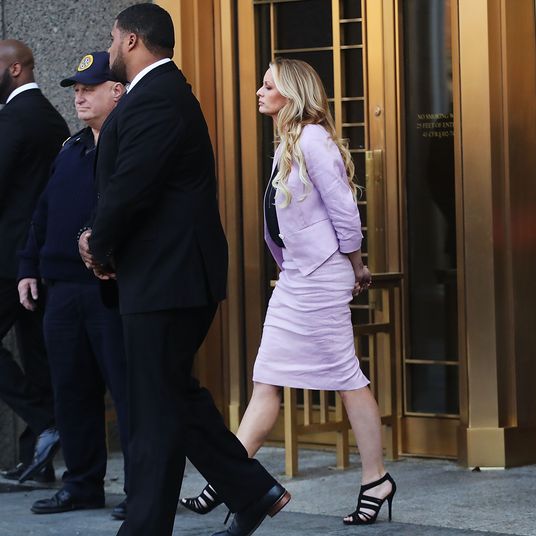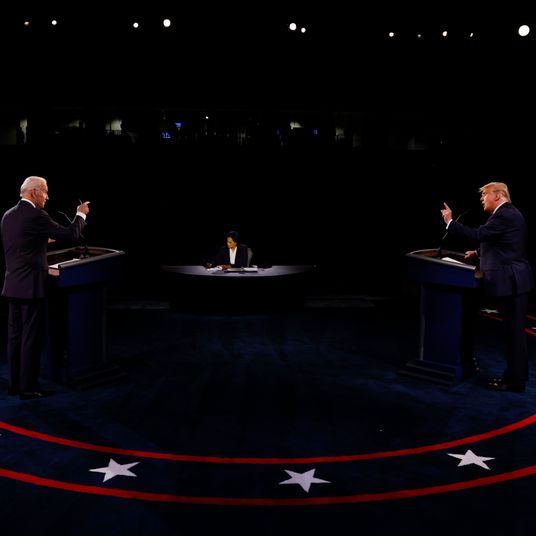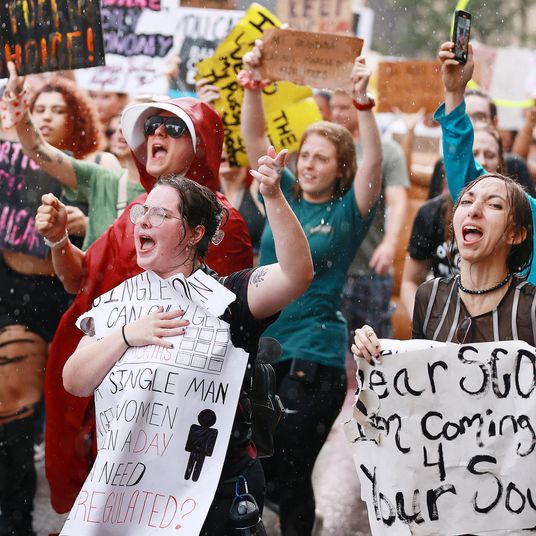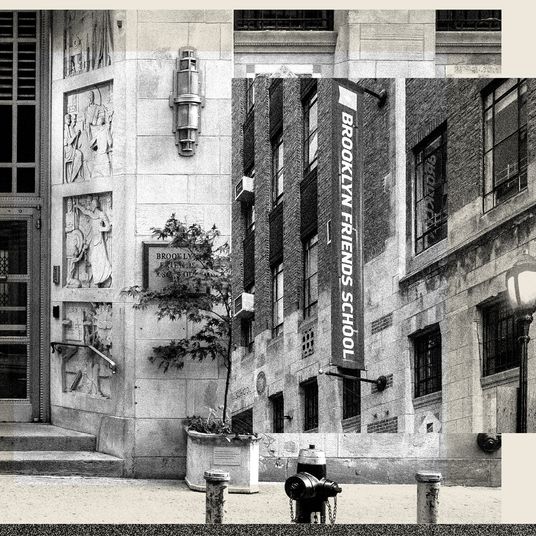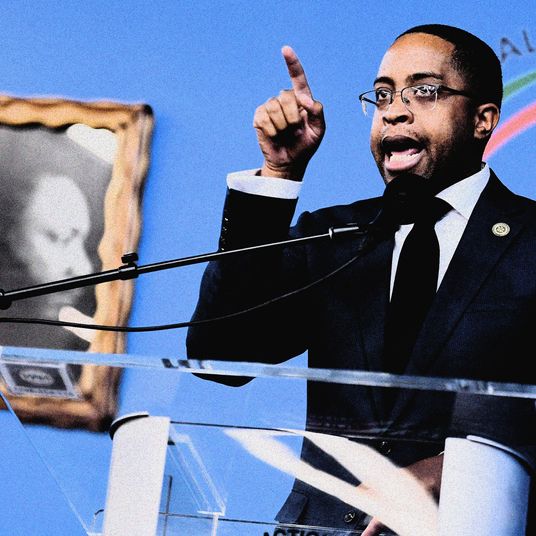
Federal Judge Aileen Cannon has been a thorn in special counsel Jack Smith’s side for almost two years. Cannon, who was appointed to the bench by Donald Trump in 2020, first drew widespread attention in 2022, when she oversaw a civil lawsuit Trump filed related to the classified-documents case against him. Cannon’s decision to allow Trump a “special master” in the case stunned legal observers, who saw it as a legally questionable gift to the former president. That earned her a strong rebuke from a conservative-leaning panel of the 11th Circuit Court of Appeals, which overturned the ruling.
Since last year, Cannon has presided over Trump’s criminal trial in the documents case and has continued to issue a series of puzzling decisions, almost all of which have benefited Trump, while maintaining a lethargic pace that is also advantageous for the former president — who has made no secret of his Cannon fandom. Recently, Cannon and Smith clashed over a confounding set of instructions she handed down involving Trump’s attempt to have his case dismissed over the Presidential Records Act.
What explains Cannon’s judicial behavior, and what, if anything, can Jack Smith do about it? For perspective on those questions, I spoke with University of Texas law professor Lee Kovarsky, who has frequently opined on the documents case.
Last week, Judge Cannon dismissed Trump’s attempt to have his case thrown out with the claim that taking and keeping classified documents is legal under the Presidential Records Act. But even in that ruling, observers thought she may have undermined Jack Smith. Can you explain how?
She dismissed Trump’s motion to dismiss, meaning she said that she wasn’t going to dismiss the whole case because Trump had conclusively proven that the Presidential Records Act foreclosed prosecution. But by deferring decision on whether the Presidential Records Act is a viable defense, she avoids deciding it now, when her mistake could be corrected, and defers the decision for later, when it can’t.
Meaning it couldn’t be appealed.
It couldn’t be appealed. You’ve heard the phrase “double jeopardy.”
Yeah.
The moment when jeopardy attaches at a trial is a really significant thing — it’s when the jury is impaneled and sworn in. And basically, if she gives the instruction to the jury and the jury acquits based on that flawed instruction, Trump can’t be retried after the acquittal because of double jeopardy. Alternately, she doesn’t even have to send it to the jury. She could direct a verdict in Trump’s favor before she sends anything to the jury on that basis. And that also would not be reviewable because of double jeopardy. The fact that she’s left the issue open to be the basis of an instruction or a directed verdict later is what’s so canny about it. Not canny, but deceptive.
Because she may be setting up a land mine?
Yeah. Whereas if she had just decided it now, even if she had decided it wrongly, then Smith could have taken it up to the 11th Circuit for correction before jeopardy ever attached, so it wouldn’t affect the outcome of the trial. But she’s deferred.
This comes on the heels of a widely criticized move in which she ordered prosecution and defense to come up with instructions to give to the jury if Trump were to use the Presidential Records Act as a justification. How did that fit with this new ruling?
It’s three-layered weirdness. I’d put it this way: The first layer of weirdness is that she asked for input from the parties on the instruction now. The second layer of weirdness is the legal idea that apparently motivated her to ask for input now, namely that the PRA matters in this case. And the third layer of weirdness is the level of indignation that she showed when the parties asked that she definitively resolved that question given that she had asked for input.
Indignation toward Jack Smith’s team, which seems to be a constant theme in this case.
I spend a lot of time litigating death-penalty cases in the Fifth Circuit, which isn’t composed of judges who are particularly predisposed to my clients. And so I litigate in front of hostile judges a lot, and I know what it looks like. And when you have a judge that is hostile or skeptical or disfavorably aligned with your case, they rarely surprise you in a good way.
The difference here is the weirdness element. Some of her rulings haven’t just been unfavorable — they’ve been head-scratching.
The magnitude of the legal mistakes that are happening is weird. They’re always in the same direction, right? The legal mistakes are always Trump-favorable, and all of this is going on while Trump’s basically dangling a promotion over her head.
A promotion to what, an Appeals Court job?
Or whatever. I’ve joked a lot that she should be called Justice Cannon. Look, if you’re an amoral person and you want to signal to folks that they’re going to get promotions if they side with you, this is one way to send that message.
There are a few explanations I’ve seen for Cannon’s pro-Trump tilt. One is that she’s just politically aligned with him to such an extent that she’s giving him every possible break. The other one is a little more sinister and points to some kind of arrangement, spoken or unspoken, more like what you just described. And then there’s another school of thought that it’s more her inexperience that’s just leading to these baffling decisions — she’s fairly new to the court and maybe doesn’t know what she’s doing. I know we can’t get in her head and we don’t even really know much about her legal philosophy, but what do you think is happening?
I think it’s a combination of the first one and the third one. I don’t think he’s communicated or back-channeled an offer to her. It’s all just very Trumpy public communication that’s capable of multiple different interpretations, and that can be plausibly denied given whatever punt now needs to occur. What I do think is happening is she’s extremely inexperienced and, candidly, just not that sophisticated. I assume that she’s not setting out to do whatever Trump wants, but I think her inexperience and lack of sophistication is leading her to split the baby in situations where the baby shouldn’t be split. She’s just picking the halfway point without being able to really grasp which side is the ridiculous side. The reality plus the optics of that produces this media narrative that she’s in Trump’s pocket. But I really do think it’s more just that she’s really unsophisticated and her priors do lean Trump, and so she wants to split the difference where it shouldn’t be split.
That’s plausible to me. Because most judges who have been appointed by Trump — yes, they align with him ideologically and politically and make right-wing rulings, but in cases involving his own personal conduct, they haven’t been particularly friendly to him.
Yeah. There’s this whole thing about Federalist Society judges, and where Trump-led litigation dovetails with the institutional movement objectives of the Federalist Society, I think they’ve been very outcome-motivated in achieving those institutional or movement objectives. But as you say, when it’s Trump the criminal defendant or Trump the personal stakeholder in the litigation, he actually hasn’t fared that well.
Including on the 11th Circuit, when they ruled against Cannon in 2022. Two out of the three of those judges were Trump appointees.
Yeah. And in the Georgia case that Mark Meadows tried to move — I think that was the magnum opus takedown. It’s written by Bill Pryor, who’s — I don’t want to say the most conservative judge on that court, but certainly the most respected-in-conservative-circles judge on that court, and probably the Circuit Court judge who’s closest in disposition and content to Justice Thomas. And Karen LeCraft Henderson joined the D.C. Circuit opinion in the immunity case, and she’s a stalwart conservative.
Yeah, exactly. That’s why your explanation about inexperience makes sense to me.
She doesn’t want to hand Trump out-and-out wins. I think back to the litigation over what they seized after the search of Mar-a-Lago. It wasn’t like, “Trump wins.” It was this weird setup where there was going to be segregation of documents. And here with this ruling, she’s not going to dismiss the case on the basis of this presidential-record stuff. She’s just going to hold it for later. I do think that if she retains this case all the way through a verdict, she’s extremely likely to dispose of it in a way that is Trump-favorable and unreviewable.
You think this is a dead end for Jack Smith with her on the bench?
I’m not absolutely certain. But I think so. The stuff she’s doing is just so partisan-looking and so procedurally atypical that I just don’t have a lot of confidence that it would hew to normal protocol.
Whatever else, her decisions have the effect of dragging this out longer than it has to be.
People disagree with me about this, and they’re totally reasonable people, and now I’m just spitballing. This isn’t even legal expertise, really. But if I’m her, I’m just looking at a payoff matrix, like a game theorist or something. Why not push this back until the election’s over? Because the day after the election, if Trump wins, I shut the case down and collect my bounty. And if Trump loses, I just let the case go forward normally, and my professional reputation can recover in a decade. So I actually think there’s a decent amount of incentive for her to delay this a bit, but I’m not certain that if it’s delayed past the election and Trump loses, that she’ll shut the case down. I do think there’s a possibility that she cuts the case down before the election, and if Trump wins, I’m virtually certain she’ll shut the case down. But she won’t totally need to just because Trump will be able to.
That would be very nakedly transactional.
Yeah. But I mean, again, this goes back to how … Do you know any economists?
My father’s an economist, in fact.
You know how they’re fond of saying, “I don’t make moral judgments, I just predict behavior”? I don’t know what’s in her head. I don’t know what’s motivating her, what values are behind it. I just know that her behavior tends to correspond to this explanation. So I don’t know if it is transactional cravenness. Nevertheless, what a transactionally craven person would do might be a pretty decent predictor for what’s ultimately going to happen.
In your mind, is there anything Jack Smith can do to avoid all the pitfalls you’ve laid out?
I think there are a couple of things. First of all, I’ll say that Jack Smith and Michael Dreeben are incredibly sophisticated lawyers, and there’s lots of armchair-quarterbacking going on on cable news and Twitter. These are two lawyers who are going to figure out the outcome-optimizing thing.
People are talking about mandamusing her failure to specify the jury instruction in advance. That’s not going to happen. I don’t know why people say that. And the reason it’s not going to happen is because there’s no legal duty to do it.
I think what’s instead likely to happen is that Jack Smith will move for something called a motion in limine, which basically is a motion that asks Cannon to exclude evidence on the PRA defense during trial. That will probably have the effect of forcing her to rule on whether or not it’s a viable defense.
But the question I always have is, what’s the point of that? If you believe that Judge Cannon is programmed the way she seems to be programmed, the way I’ve described her as being programmed, and if you believe that this PRA gambit is just the first in a sequence of several contrivances she might use to shut the litigation down, then I think that the second option, seeking recusal, becomes more likely. So the first option is this motion in limine, followed by a mandamus petition on an order denying the motion. The second is a motion for recusal, which she’ll deny.
Recusal motions almost always fail. They’re Hail Marys. And they normally don’t make much sense. But the question is always, well, what’s the alternative? And if you’ve decided that leaving the case with Judge Cannon is a near-certain loss, then at least as a relative matter, the recusal pathway looks a little bit better. I don’t want anybody to confuse me with somebody who thinks recusal is likely to succeed or is such a great idea, but it comes down to this. If you think that Cannon is totally in the tank for Trump, it doesn’t matter whether you win on the PRA.
At the same time, it’s a risky gamble to try the recusal route, right?
But a lot of times when we say “risky gamble,” we mean it’s a bad bet. I’m not certain it’s a bad bet here. It is risky, but when the alternative is a near-certain loss, then all of a sudden high-risk gambits are more attractive.
This interview has been edited for length and clarity.
More From This Series
- Will New York See Another Smokepocalypse This Summer?
- The Viral Ohio State Commencement Speaker Explains Himself
- A Columbia ’68 Revolutionary Takes Stock of Today’s Protests






